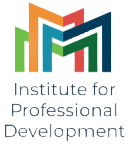Do You Cultivate Trust?
By: Beth Schaefer Director, Institute for Professional Development
Last week, I attended a seminar by Daryl Connor, Building a High Impact Change Practice. It was sponsored by the Minnesota Change Network – a great group. Check them out if you love leading change or have a passion for organizational development.
Mr. Connor presented on what he calls a High Impact Trusted Advisor (HITA). The role of the HITA is to help leaders make informed decisions; it is not about being responsible for leaders’ decisions.
The presentation was in the context of the HITA being a change consultant. His discussion was about criteria that a consultant (either internal or external) could use to determine if they were truly a HITA or if they were more in an operational role, and what actions one should take to become a HITA.
I left the session with much to ponder, and where my pondering led me was that his message applies to a much broader audience than just change consultants or organizational specialists who want to be HITAs.
Disclaimer: I should be clear here that Mr. Connor may disagree with my observations and conclusions. I encourage you to research Mr. Connor’s theories for yourself.
Instead of thinking about Connor’s questions and whether or not my organization considers me a HITA, I thought more about my leadership style and started wondering if I, as a leader, create the space for HITAs to flourish. Should all the onus of honing HITAs be on the advisors themselves? I think not. Organizations should be creating the space for HITAs to flourish.
What would the question list look like for leaders to evaluate their ability to cultivate HITAs? This is a list I came up with based on Connor’s presentation:
1. Do I seek input on important decisions?
• Do I take responsibility and make “the call” based on the input, or do I continually spin?
• Do I give credit to my advisors when the call is a good one?
• Do I take the heat when I make the wrong call?
2. Am I open to honest input?
• Do I seek out input from the people who are “experts” or have expertise in areas where I need input?
• Do I provide opportunity for people to build expertise and earn credibility?
• Do I value input that contradicts what I expected to hear or wanted to hear?
3. Do I share information? Note: As always, time and place should always be factored in when sharing information; however, the best advice needs to be given within a context, so as a leader, provide as much context as you are able.
• Do I trust my people with information that provides the whole context?
• Do I try to provide information in a nonbiased manner so that my advisors can offer their unique perspectives?
• Do I share information early enough in the process to take bold recommendations forward?
Mr. Connor finished the presentation by telling HITA, “Who You Are is as important as What You Do.” I would say the same would apply to leaders. If you want to be submersed in a culture full of HITAs, start with evaluating your character and actions.


